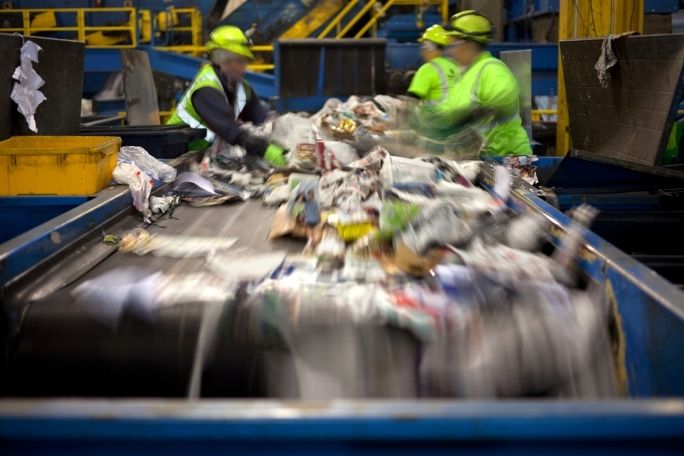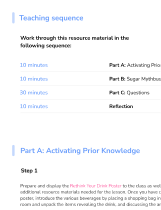Lesson summary
In this lesson, students will explore how recyclable materials are separated according to the material they are made of, using their physical properties. They will read about physical properties, then apply their understanding when watching a series of short clips that show materials being separated. Students will then work in small groups to design their own way to separate one specific recyclable material from other objects by exploiting its physical properties.
Learning intentions:
Students will...
- understand that there are recyclable and non-recyclable materials
- understand how to categorise materials according to their physical properties
Success criteria:
Students can...
- classify materials into recyclable and non-recyclable categories
- identify one physical property of certain material that can be used to separate it from other materials
- apply their knowledge about materials to design a way to separate out a recyclable material
Lesson guides and printables
Curriculum links
Select your curriculum from the options below.
Lesson details
Curriculum mapping
Australian curriculum content descriptions:
Year 7 Science:
- Change to an object’s motion is caused by unbalanced forces, including Earth’s gravitational attraction, acting on the object (ACSSU117).
- Scientific knowledge has changed people’s understanding of the world and is refined as new evidence becomes available (ACSHE119).
- Solutions to contemporary issues that are found using science and technology, may impact on other areas of society and may involve ethical considerations (ACSHE120).
- People use science understanding and skills in their occupations and these have influenced the development of practices in areas of human activity (ACSHE121).
- Communicate ideas, findings and evidence based solutions to problems using scientific language, and representations, using digital technologies as appropriate (ACSIS133).
Syllabus outcomes: SC4-10PW, SC4-15LW, SC4-11PW, SC4-13ES, SC4-9WS
General capabilities: Literacy, Critical and Creative Thinking, Ethical Understanding
Cross-curriculum priority: Sustainability OI.8
Relevant parts of Year 7 Science achievement standards: Students represent and predict the effects of unbalanced forces, including Earth’s gravity, on motion. Students draw on evidence to support their conclusions. They summarise data from different sources, describe trends and refer to the quality of their data when suggesting improvements to their methods. They communicate their ideas, methods and findings using scientific language and appropriate representations.
Unit of work: Visy Education – Secondary Science
Time required: 120 mins
Level of teacher scaffolding: Medium – teacher will facilitate the scientific design process.
Resources required
- Student Worksheets (one copy per student)
- Device capable of presenting a video to the class
- 16 items of litter and recyclable materials found around the school (wash before using)
- 2 bins or buckets labelled ‘Recycle’ and ‘Landfill’
Skills
- Adaptability
- Collaboration
- Communication
- Creativity
- Critical thinking
- Global citizenship
- Initiative
- Problem solving
Additional info
This lesson has been developed in partnership with Visy. For over 70 years Visy has been committed to finding sustainable solutions for Australia and New Zealand’s recyclables and helping to reduce local landfills. Visy collects, receives and sorts paper, cardboard, glass, plastics, steel and aluminium from households, businesses and schools with the purpose of reusing these products in the re-manufacture of new packaging products.


Welcome back!
Don't have an account yet?
Log in with:
Create your free Cool.org account.
Many of our resources are free, with an option to upgrade to Cool+ for premium content.
Already have an account?
Sign up with:
By signing up you accept Cool.org's Terms and Conditions(Opens in new tab) and Privacy Policy(Opens in new tab).